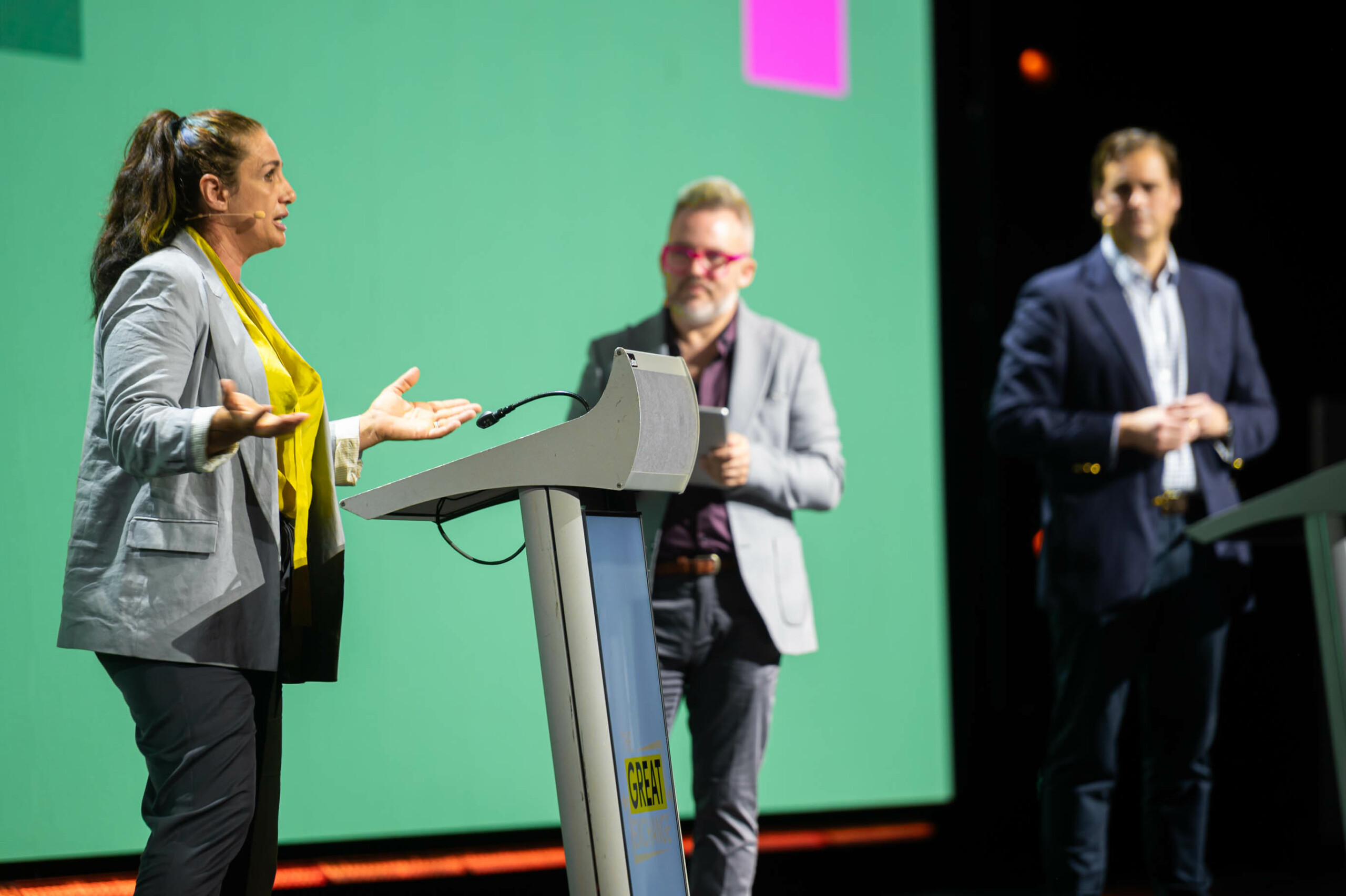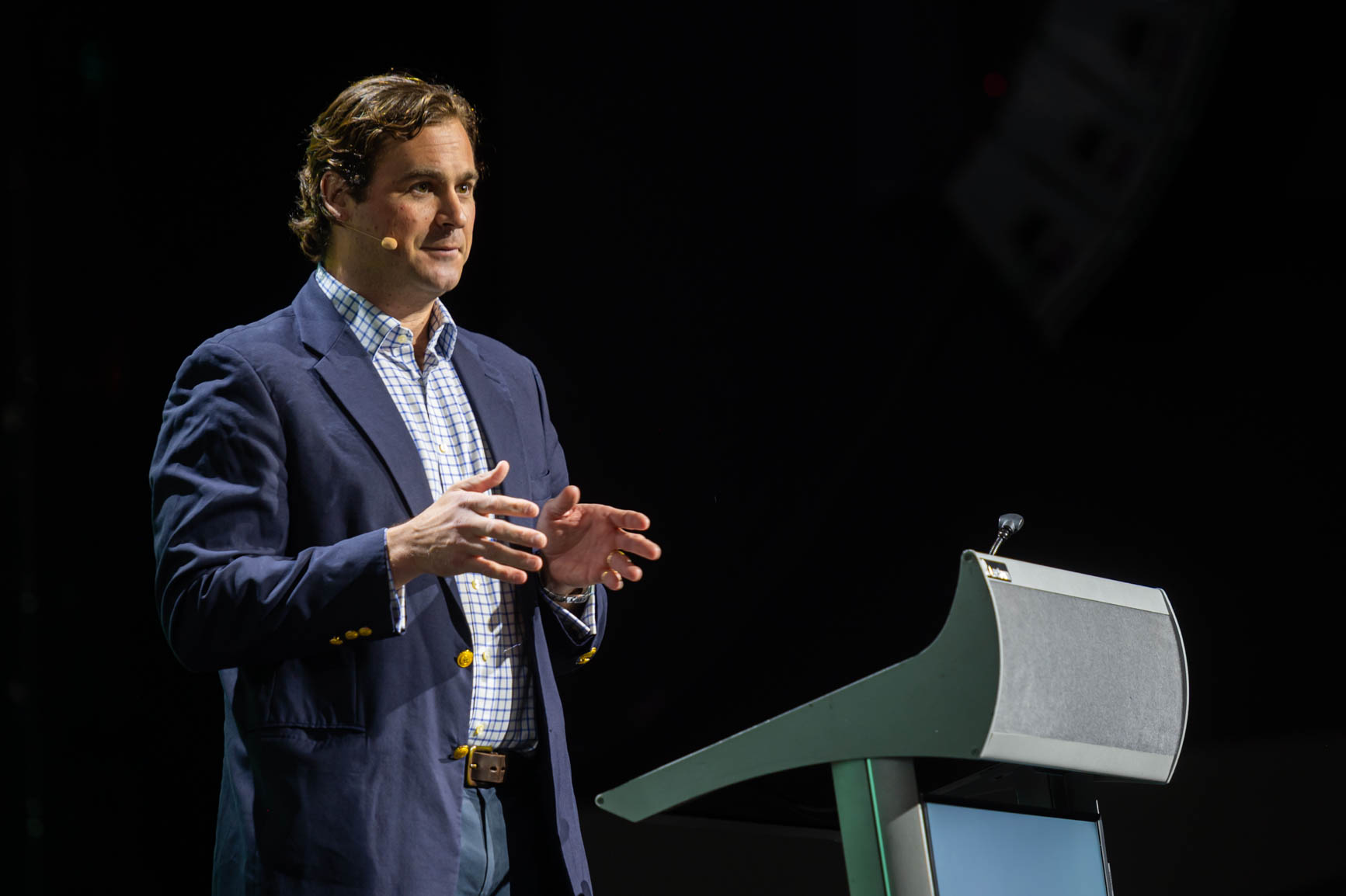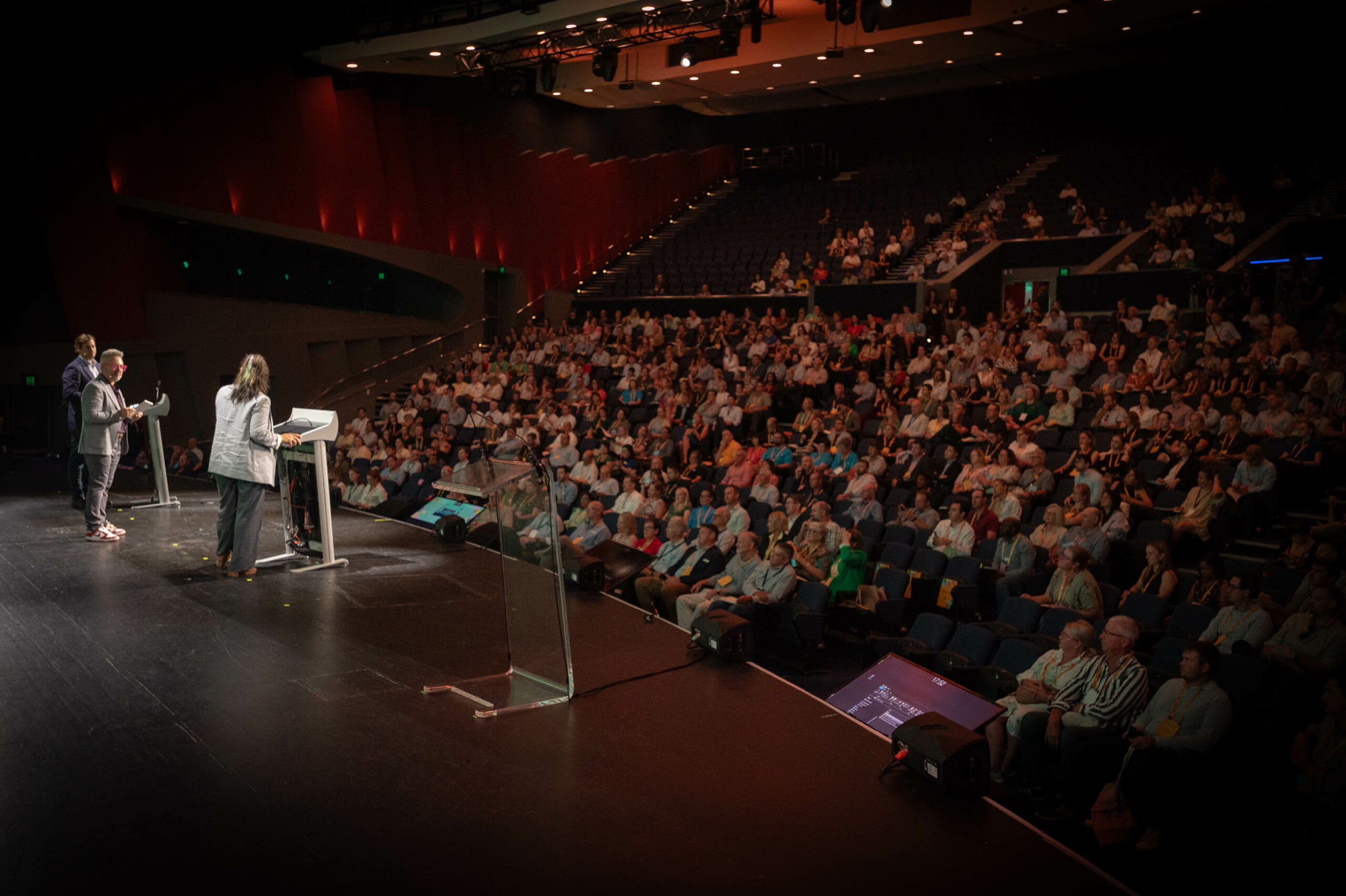No holds barred: Leading Aussie agritech founders’ frank assessment of industry challenges
With all the ideas, money and power in the world, how does Australia use its exceptional edge to be a global leader in agricultural production and sustainability? Two leaders of the Australian agritech scene – Justin Webb and Olympia Yarger – share their thoughts in a colourful debate.
Australia’s a world leader in agricultural innovation and technology, but there’s a barrier we keep coming up against – ourselves.
“The lie we tell ourselves is that we’re not big enough to be taken seriously,” Olympia Yarger, founder and CEO, Goterra, told the audience at evokeAG. 2024.
“We don’t walk into the room and say, ‘we’re here, you’re welcome’ and we need to be better at doing this. We can’t keep apologising for doing better with less and then wonder why we aren’t taken seriously.
“Australians self-deprecate as a sport, and we need to turn that off somehow and start saying we’re really good at what we’re doing, and if you’re not on board then that’s going to be a problem for you.”
It’s a problem that Olympia sees as the responsibility of all players in the agritech and innovation ecosystem, from founders to farmers to corporates.

Olympia Yarger, Goterra, urged Australians to start shouting their strengths from the rooftop. Image | Darren Wigley.
‘It’s time for corporates to step up’: AgriWebb founder lays it on the line
The need for corporates to do more heavy lifting to support the development of agritech and innovation was reinforced by AgriWebb Co-Founder and Chairman, Justin Webb, who shared the stage with Olympia.
His view? It’s not fair for corporates to expect farmers to bear the responsibility for making agritech happen.
“Look at Startup Alley at evokeAG. Who are the customers of those startups? They are farmers; yet farmers are at the thin edge of the profitability margin wedge in food production, however, they’re being asked to carry both the cost and risk burden of agritech,” Justin said.
“We ask them to take the price risk, the risk of the efficacy of innovations in AgTech, and yet the corporates share in the benefits that are harvested through the supply chain.
“It’s time for corporates to step up.
“They need to commercially recognise that they are getting a benefit from the farmers who are taking the burden of responsibility of paying for agritech innovation. Retailers and processors should recognise that farmers are paying for this from the thin edge of the wedge. Corporates must start shouldering the burden and cost.”

Justin Webb, AgriWebb, said corporates need to do more to support the development of agritech and innovation. Image | Darren Wigley.
Justin referenced recent moves from Sainsbury’s and other major food retailers in the United Kingdom and United States including McDonald’s.
They’ve partnered with AgriWebb to not only pay producers’ AgriWebb subscriptions but to pay a premium back to producers per kilogram of meat for the evidence that the meat they’re buying is antibiotic-free and has a low or evidence of reducing their carbon footprint.
“And guess what? They haven’t gone out of business,” Justin said.
“If you divide the turnover revenue of Woolworths and Coles by the number of farms in Australia, you land a figure of $780,000 per farm. Is that a little unfair? The burden of responsibility for these things needs to be shared.
“There are real commercial examples of the world’s biggest corporates taking some of the responsibility to connect with primary production end of the supply chain and actually doing it from their balance sheets, and they haven’t gone broke.”
No funding, no Australian-based agritech
“We’re forcing our companies overseas with the lack of funding available here,” Olympia said.
Olympia went on to explain the number of funds who address series B and beyond company’s is very small in Australia, which means many Agtech startups have to look for capital overseas, which can often change their business plan and expansion strategy.
A need for international investment can mean a company will have to focus on international Business Development before it may be ready, and often means the company will end up headquartered overseas long term.

The Great Exchange drew a crowd at evokeAG. 2024. Image | Darren Wigley.
So, what do these startup stars think government should be doing about the barriers to growth of agritech and innovation in Australia?
“Government needs to create incentives to unlock capital flows, by removing tax penalties on investments into agritech,” Olympia said.
For Justin, the key will be sharing the burden of risk and responsibility between producers, corporates and governments, and fixing the gender imbalance is critical.
“Seventy five percent of funding in Australian Venture Capital comes from white males, 80% of that funding goes to white males. If people who look like me [ed: Justin is a white male] don’t stand up and call that out, then that’s wrong,” Justin said.
“Furthermore, the last time I checked, the buying universe for startup products was 50% female, so it makes sense that our industry should have the venture funders, looking at and investing in founders, who are also female.”
Tap into more discussions here about the role of agrifood tech in driving sustainability across supply chains, news from agritech startups and updates ahead of evokeAG. 2025 in Brisbane, Queensland.
